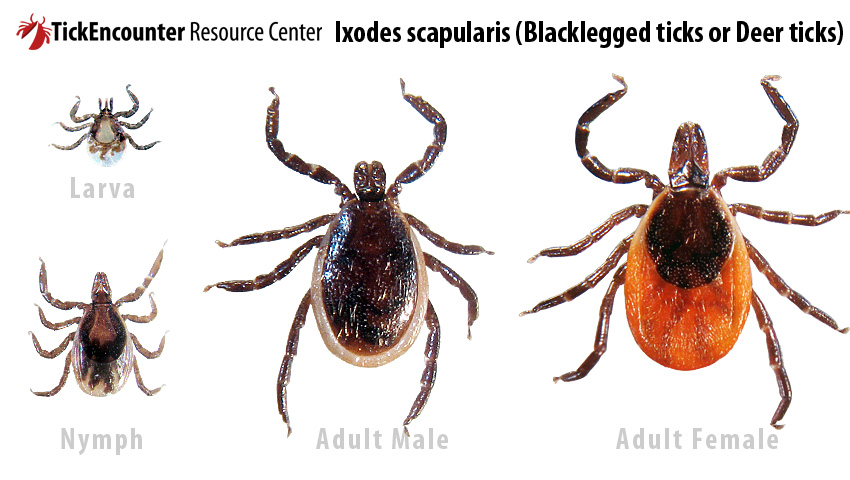Lyme disease is a prevalent issue in Nova Scotia for our canine companions. With tick season upon us, it is a great time to revisit the important topic. Ticks are typically out looking for blood meals when the ground thaws in the spring and the temperature is remaining above zero degrees Celsius. Lyme disease is spread via bites from the deer tick (Ixodes scapularis). The deer tick has to be embedded and feeding on a host for 1-2 days before it can transfer the bacteria that causes Lyme disease.

Only a portion of dogs that get infected with the bacteria will develop clinical symptoms of Lyme disease, and it typically takes 2-5 months for those symptoms to develop. The most common symptoms include fever, lethargy, swollen or painful joints, and enlarged lymph nodes. A less common but very severe complication of Lyme disease is kidney damage, known as Lyme nephritis. The kidney failure is acute and progressive and sometimes fatal.
There is a simple blood test that can be done to see if your dog has been infected with the bacteria that can lead to Lyme disease. The test can detect the infection 1-2 months after exposure. The test is usually performed in the clinic and you get the results the same day! The test also looks for other tick-borne illnesses that are present in Nova Scotia. As mentioned, since not all dogs who are infected with bacteria develop Lyme disease, the most appropriate treatment plan for your companion will be prepared in discussion with your veterinarian.

Since Lyme disease has serious health complications, prevention is key! Ticks need to be attached for a period of time for transmission to occur, so please so daily tick checks on your pet to look for the embedded parasite. Prompt removal is important. Removal of the tick can be done with Tick Twisters (available at your local veterinary hospital). If you feel uncomfortable removing the tick yourself, please do not hesitate to give your veterinary clinic a call. Another level of protection includes using tick preventatives. There are many parasite treatments available on the market and the most appropriate one for your pet can be chosen in consultation with your veterinarian. There is also a Lyme vaccine available, though is does not replace using a tick preventative. As mentioned previously, ticks transmit more than just Lyme disease.
If you have any questions regarding ticks, Lyme disease, or any other pet health questions, please do not hesitate to give your clinic a call.
